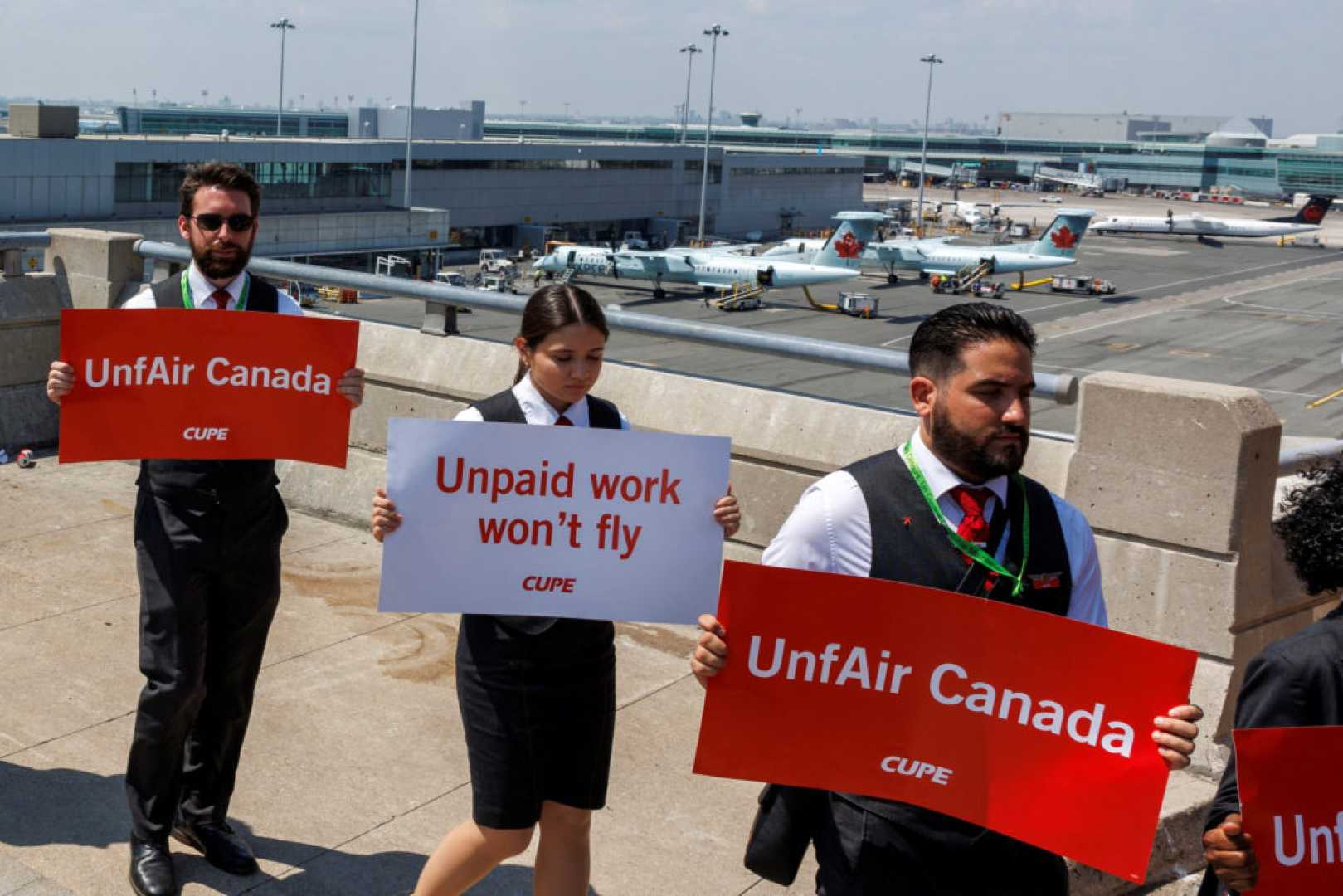News
Canadian Government Intervenes in Air Canada Flight Attendants Strike

OTTAWA, Canada — The Canadian government intervened Saturday to end a strike by Air Canada flight attendants by requiring binding arbitration to break the contract stalemate. This move came after thousands of cabin crew members walked off the job just before 1 a.m. EDT, disrupting nearly all of the airline’s 700 daily flights and affecting over 100,000 passengers.
Jobs Minister Patty Hajdu announced at a news conference that she had requested the Canada Industrial Relations Board to impose binding arbitration and end the strike immediately. “This is not a decision that I’ve taken lightly, but the potential for immediate negative impact on Canadians and our economy is simply too great,” she said.
The primary issue in the negotiations has been the union’s demand for compensation for time spent on the ground between flights and in assisting passengers, as cabin crew are currently only compensated during actual flight time. Air Canada had sought the government’s intervention, noting concerns over economic instability.
However, the Canadian Union of Public Employees (CUPE), representing the attendants, opposed the government’s decision, arguing it undermines their bargaining power. “The Liberal government is rewarding Air Canada’s refusal to negotiate fairly by giving them exactly what they wanted,” CUPE said in a statement.
Air Canada has mentioned that resuming full operations may take four to five days, assuming the board grants Hajdu’s request, which is typically expected. While the airline proposed a 38% increase in total compensation over four years, CUPE dismissed the offer as insufficient. The union claimed it was below inflation and minimum wage, even as they sought equitable wages compared to attendants at Air Transat, who recently secured a more favorable contract.
CUPE officials reported that negotiations had stalled, with no bargaining sessions planned. Hundreds gathered at major airports including Toronto Pearson, where the strike began, holding up picket signs and expressing unity among the cabin crew. Hajdu also requested the extension of the current collective agreement until a new one is negotiated.
As the situation continues, the strike’s impact on travelers has drawn widespread attention, with many passengers taking to social media to express support for the flight attendants’ cause.
“Air Canada deeply regrets the effect the strike is having on customers,” the airline stated, advising travelers not to head to the airport unless flying with a different airline.












